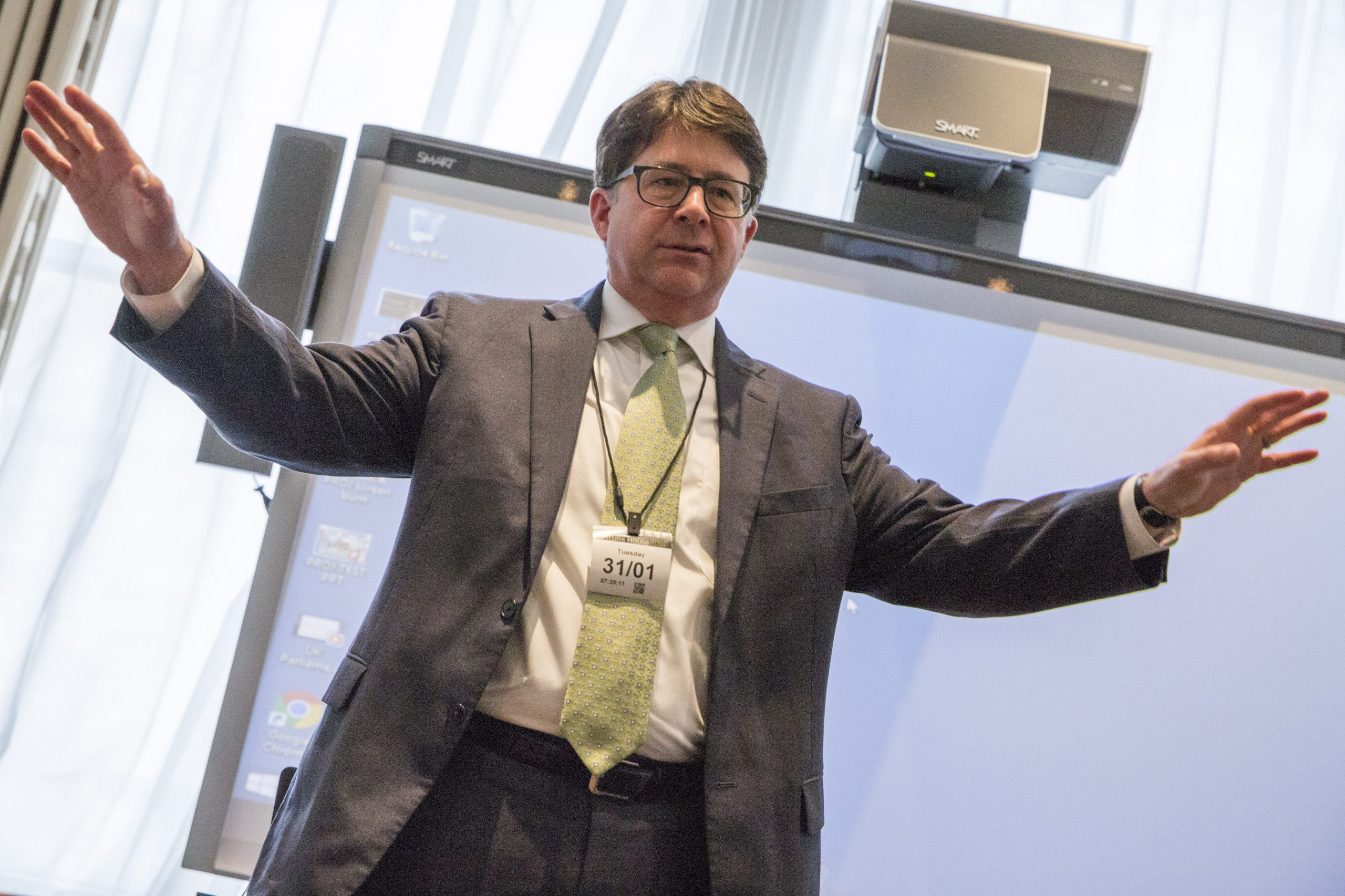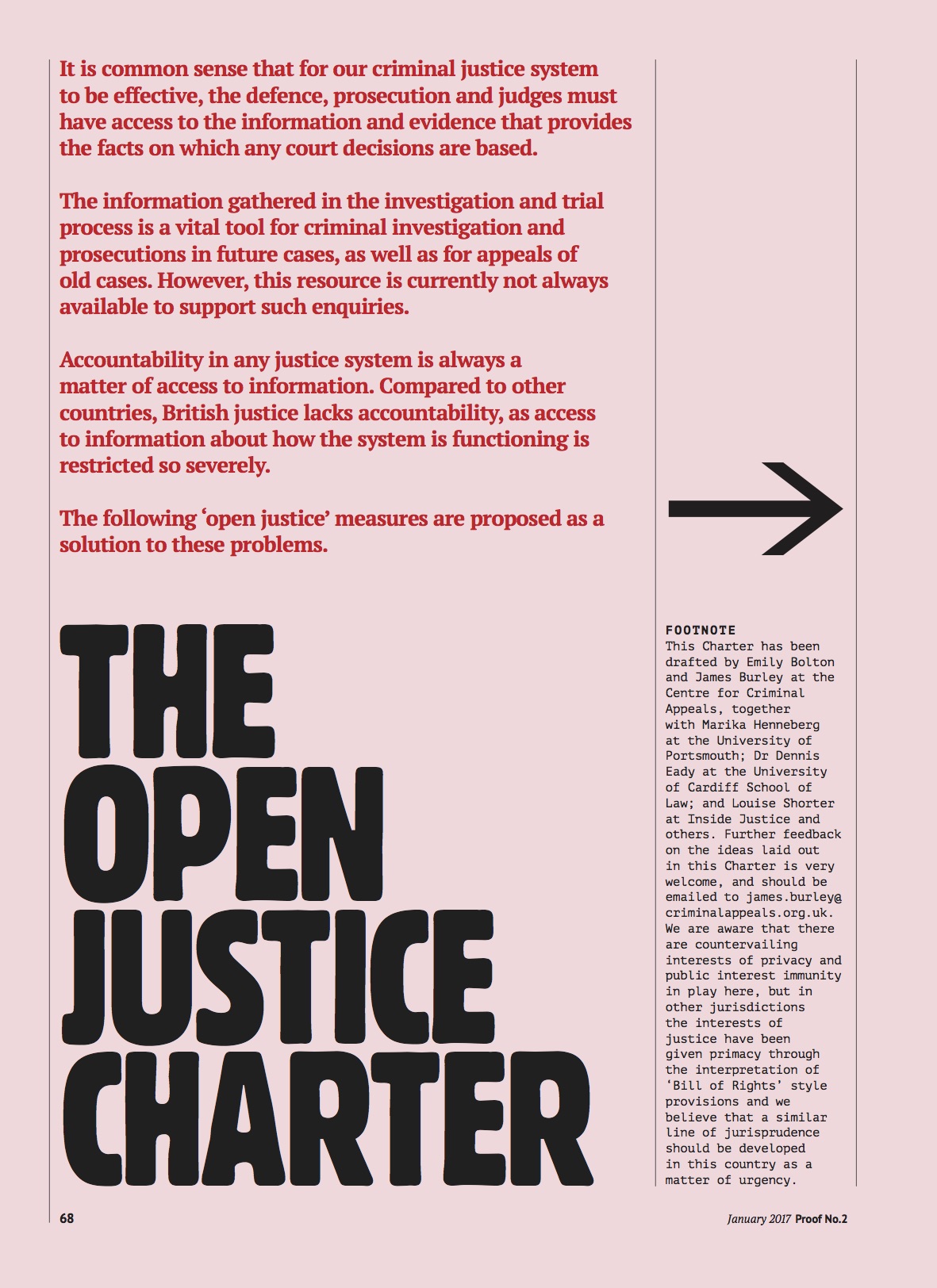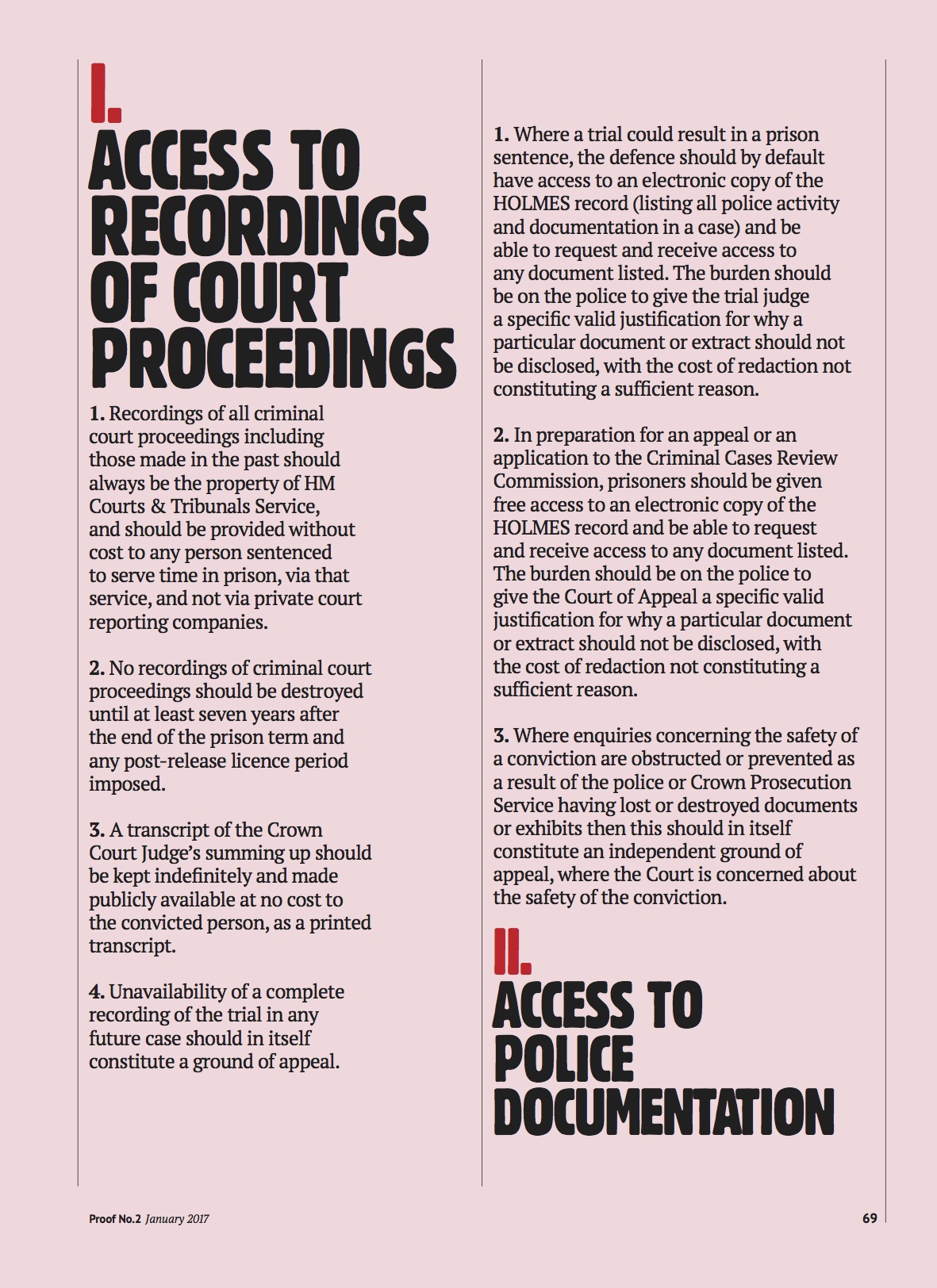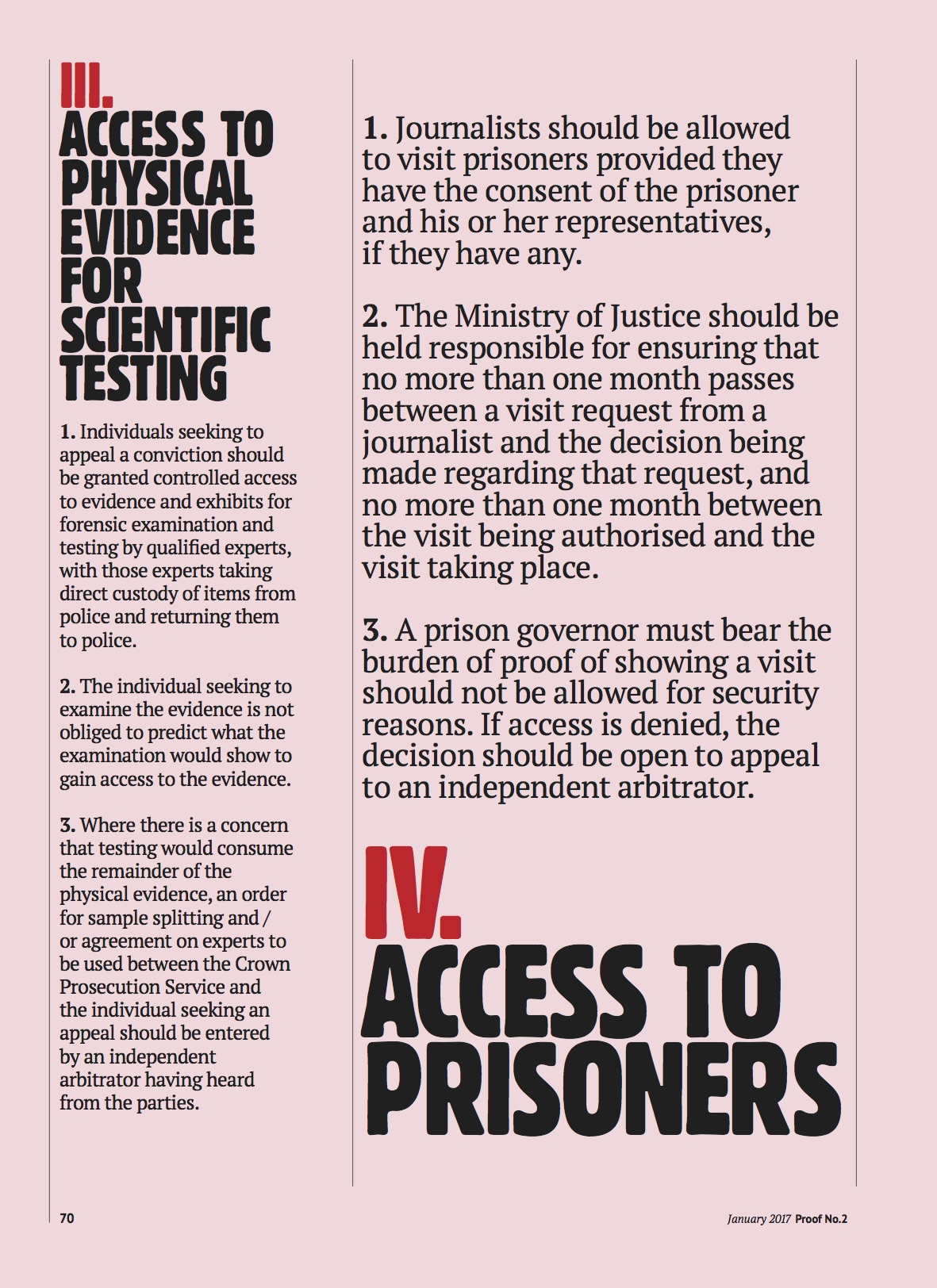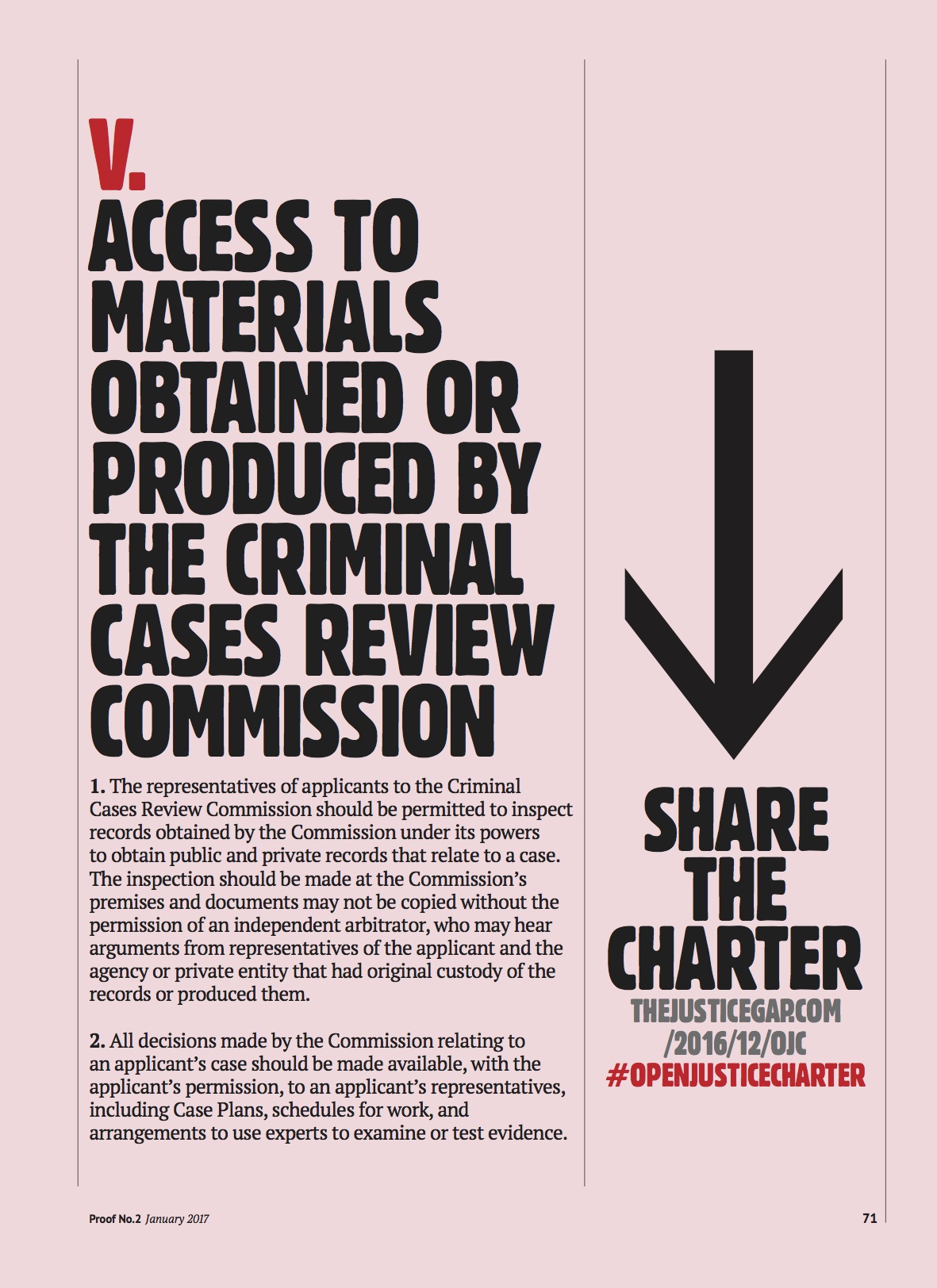The leading civil liberties group has agreed to support the Open Justice Charter. Following a motion at Liberty’s AGM, its members voted to support the series of demands for greater transparency and openness in our justice system.
The Open Justice Charter was drafted by a group of lawyers, academics and journalists working with the victims of miscarriages of justice and calls for greater access to the recordings of court proceedings and documents held by the criminal justice agencies, as well as access for journalists to prisoners.
The following motion was passed:
‘To offer campaigning and lobbying support to the Open Justice Charter launched in the second edition of Proof magazine and at the House of Commons on 31st January 2017. The Charter is seeking to achieve post-trial access to trial transcripts, police documentation, physical and scientific evidence and journalistic access to prisoners. All of which are currently greatly restricted and deny people wrongly convicted of criminal offences a fair and reasonable opportunity to uncover evidence that may support or prove their innocence.’
The charter, which features in the latest issue of Proof magazine, has been drafted by Emily Bolton, founder at the Centre for Criminal Appeals together with Marika Henneberg from Portsmouth University, Dr Dennis Eady from Cardiff School of Law and the journalist Louise Shorter.
‘In the course of trying to identify who has been wrongfully convicted and who has not, we’ve been continually frustrated at the lack of transparency in the British justice system,’ Bolton told the Justice Gap (here).
‘The steady stream of British justice is in danger of becoming no more than a trickle,’ commented human rights lawyer Michael Mansfield QC who acts for the Hillsborough families. ‘It has already been deprived of the necessary public funding for basic access and protection of rights. Equally important is access to the record of proceedings, and case documentation, without which injustice can be washed away.’
‘The biggest challenge to our justice system in recent years has been delivered by the Hillsborough inquests. That was accomplished by disclosure and re-examination of documents. Shining the light on such matters rarely comes from inside the system itself but from the tireless efforts of those on the outside, invariably the victims and survivors often empowered by intrepid journalists. The need for this charter is now more important than ever.’
Michael Mansfield QC
Making a Murderer’s Dean Strang spoke at a launch in parliament earlier in the year – see here.
